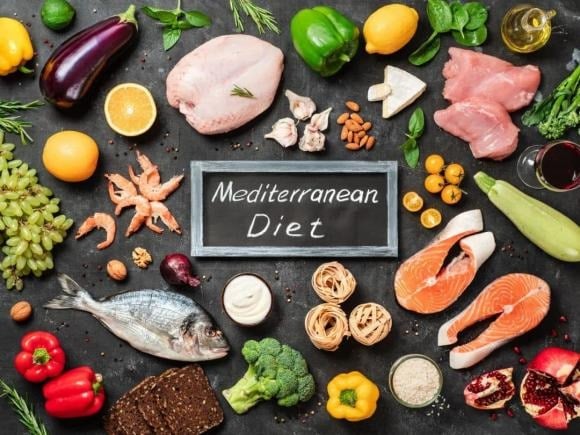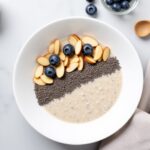3 Types of Foods to Eat Less for Heart and Bone Health
Avoid Processed Foods High in Fat for Heart Health
Processed foods, especially those containing high levels of trans fats like french fries, sausages, and fried chicken, can severely damage cardiovascular health. These foods increase bad cholesterol (LDL) levels, leading to clogged arteries and an elevated risk of heart disease and stroke.
Moreover, they are often loaded with salt, sugar, and preservatives, which can raise blood pressure and put extra strain on the heart. To maintain cardiovascular health, opt for natural, low-fat foods such as fruits, vegetables, and whole grains.
Consume Less Raw and Cold Foods to Protect the Spleen and Stomach
Cold and raw foods, such as iced drinks and cold salads, can weaken the spleen and stomach, especially after the age of 50. According to traditional medicine, consuming too much cold food can affect nutrient absorption, leading to deficiencies in blood and energy. To protect your digestive system, prioritize warm foods, especially during breakfast and dinner, and avoid drinking cold beverages on an empty stomach.

Eat Less Salty Foods to Prevent Osteoporosis
A high-salt diet can decrease bone density and increase the risk of osteoporosis as you age. Salt can increase the excretion of calcium through urine, gradually weakening your bones over time.
To support bone health, reduce your salt intake and season your food with natural spices like garlic, ginger, and herbs instead. Additionally, incorporate calcium-rich foods like dairy, soy products, and green vegetables into your diet to maintain strong bones.
Suggestions for Alternative Foods to Maintain a Healthy Diet
Warm Foods
Limit raw and cold foods and opt for warm dishes in your daily meals, such as porridge, soups, and steamed vegetables. Eating warm foods in the morning will especially benefit your spleen and stomach and enhance nutrient absorption.
Naturally Low-Fat Foods
Replace processed, high-fat foods with healthier, natural alternatives. Choose fresh fruits, nuts, and vegetables as snacks, and minimize fried foods. Additionally, foods like deep-sea fish and skinless chicken breasts are low in fat and high in protein, benefiting heart health.
Low-Sodium Foods
Season your meals with natural, low-sodium flavor enhancers like garlic, ginger, and lemon juice. Gradually reducing salt and processed food intake will help control blood pressure and prevent bone loss.

Healthy Habits for Your Heart and Bones
In addition to diet, maintaining a healthy lifestyle is crucial, especially after turning 50. Developing good habits can slow down aging and boost your overall well-being.
Moderate Exercise
Low-impact aerobic exercises like walking, brisk walking, and Tai Chi promote blood circulation, improve heart health, and strengthen bones. Aim for 30 minutes of daily exercise, at least 3-4 times a week, to reap the benefits for your heart and bones.
Get Vitamin D from Sunlight
Vitamin D aids in calcium absorption, and sunlight is a natural source of this vital nutrient. Expose yourself to sunlight for about 15 minutes daily to support bone health. If sunlight is scarce, include vitamin D-rich foods in your diet or consider supplements.
Maintain a Regular Sleep Schedule
Quality sleep is essential for bodily recovery. Aim for 7-8 hours of restful sleep each night to support cardiovascular function and bone metabolism.
Regular Health Check-ups
After the age of 50, pay close attention to your heart and bone health. Get your blood pressure, blood lipids, and bone density checked at least annually. Early detection of any issues enables timely intervention and prevents future complications.
The Ultimate Superfood Fish: A Delicious, Nutritious Catch with a Surprising Twist
Anchovies are a humble yet beloved fish species commonly found in Vietnam. Beyond their use in producing fish sauce, these small, oily fish are transformed into a variety of delectable dishes. From crispy fried anchovies to savory stews and soups, these versatile fish offer a range of flavors and textures that have captured the hearts (and taste buds) of many.














